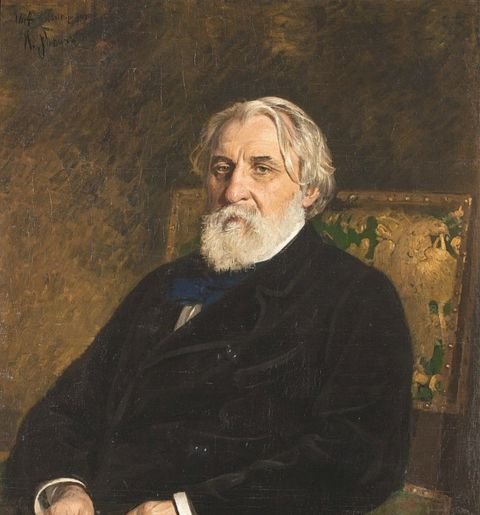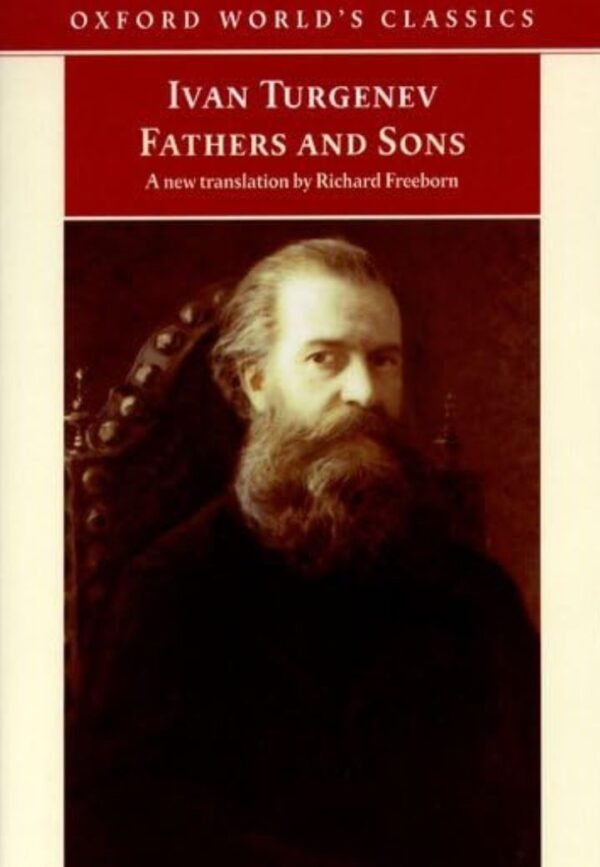
Ivan Turgenev
Ivan Turgenev (1818-1883) was a Russian novelist, short story writer, and playwright who became one of the most influential voices in 19th-century literature. Born into a wealthy landowning family, Turgenev studied at the universities of Moscow, St. Petersburg, and Berlin, where he developed a deep appreciation for Western European culture that would shape his literary perspective throughout his career.
Turgenev gained international recognition with his collection “A Sportsman’s Sketches” (1852), which offered sympathetic portrayals of Russian peasant life and contributed to the growing anti-serfdom sentiment. His masterpiece, “Fathers and Sons” (1862), introduced the term “nihilist” to the world through its complex exploration of generational conflict and revolutionary ideals in Russian society.
Unlike his contemporaries Dostoevsky and Tolstoy, Turgenev wrote with a more restrained, Western-influenced style that emphasized psychological realism and social observation over philosophical or spiritual intensity. His novels, including “Rudin” (1856), “On the Eve” (1860), and “The Virgin Soil” (1877), captured the political and social transformations of his era while exploring timeless themes of love, idealism, and the struggle between tradition and progress.
Turgenev spent much of his later life in Western Europe, particularly in the literary salons of Paris, where he formed friendships with prominent writers like Gustave Flaubert and Henry James. His cosmopolitan perspective and elegant prose style made him the first Russian author to achieve widespread European acclaim, serving as a crucial bridge between Russian and Western literature. He died in France in 1883, leaving behind a legacy that profoundly influenced the development of the modern novel.
- Realism
- Russia
- 1818
- Male
- 1
-
(0)By : Ivan Turgenev
Fathers and Sons
In Fathers and Sons, Ivan Turgenev captures the eternal tension between generations through the story of Arkady Kirsanov, who returns from university with his radical friend Bazarov, a self-proclaimed “nihilist” who believes in nothing but science and rejects all traditional values. What begins as a clash between old aristocratic ideals and new revolutionary thinking evolves into something far more nuanced—a meditation on how love, family bonds, and human nature itself resist the neat categories we try to impose on them. Turgenev’s genius lies in his refusal to take sides, instead showing us how both the romantic idealism of the older generation and the harsh materialism of the young contain their own truths and blindnesses. Can any philosophy, no matter how logically constructed, truly account for the messy complexities of the human heart? This masterpiece of Russian literature offers no easy answers, but it provides something more valuable: a deeply compassionate understanding of why each generation believes it has discovered the key to life, and why each is both right and profoundly wrong.
- Originally Published: 1862
- Publisher: Oxford University Press, 1998
- Genre: Novel
- Pages: 215
- BookType: Hardcopy (paperback)
- ISBN: 9780192833921
- Access: Members

